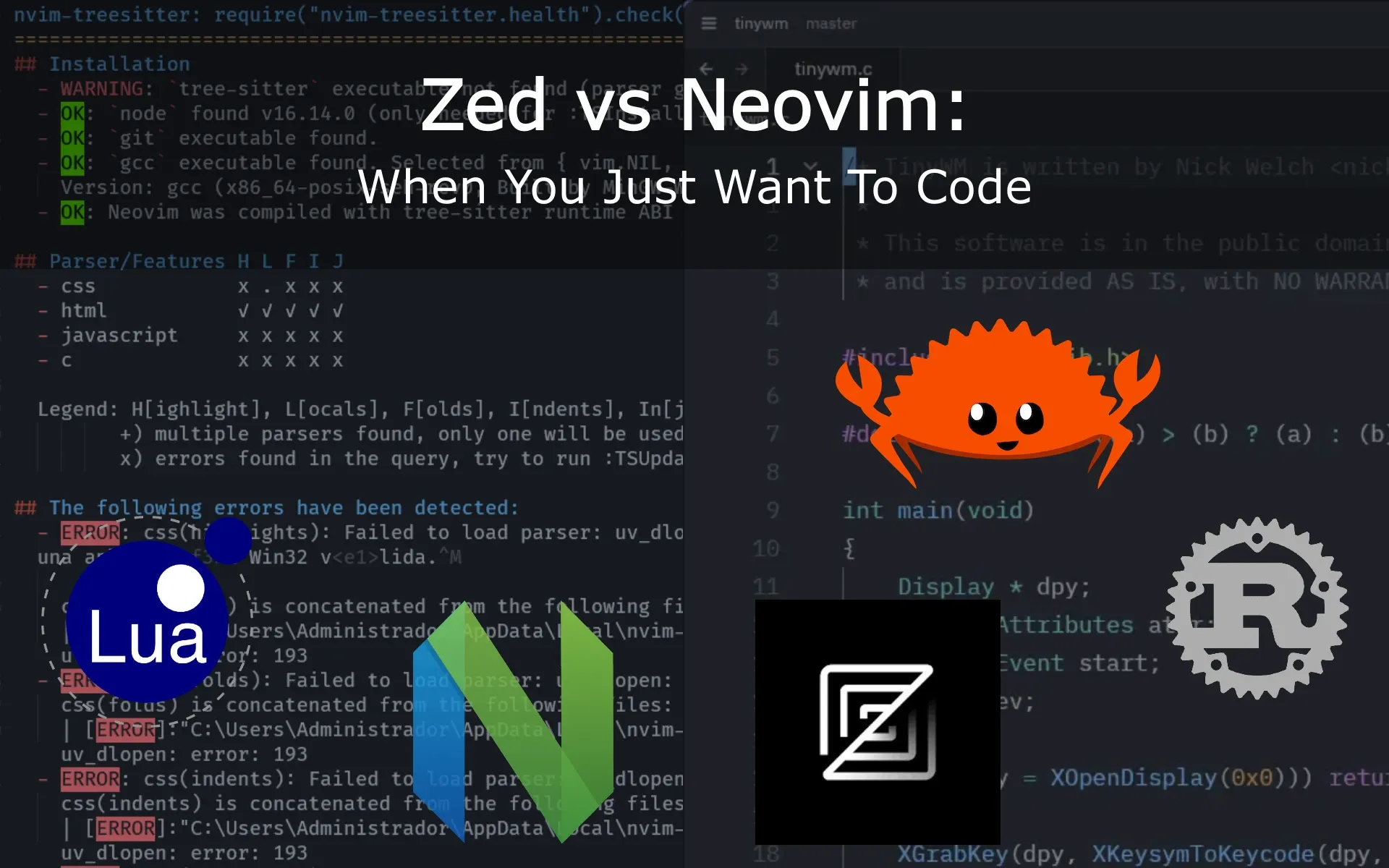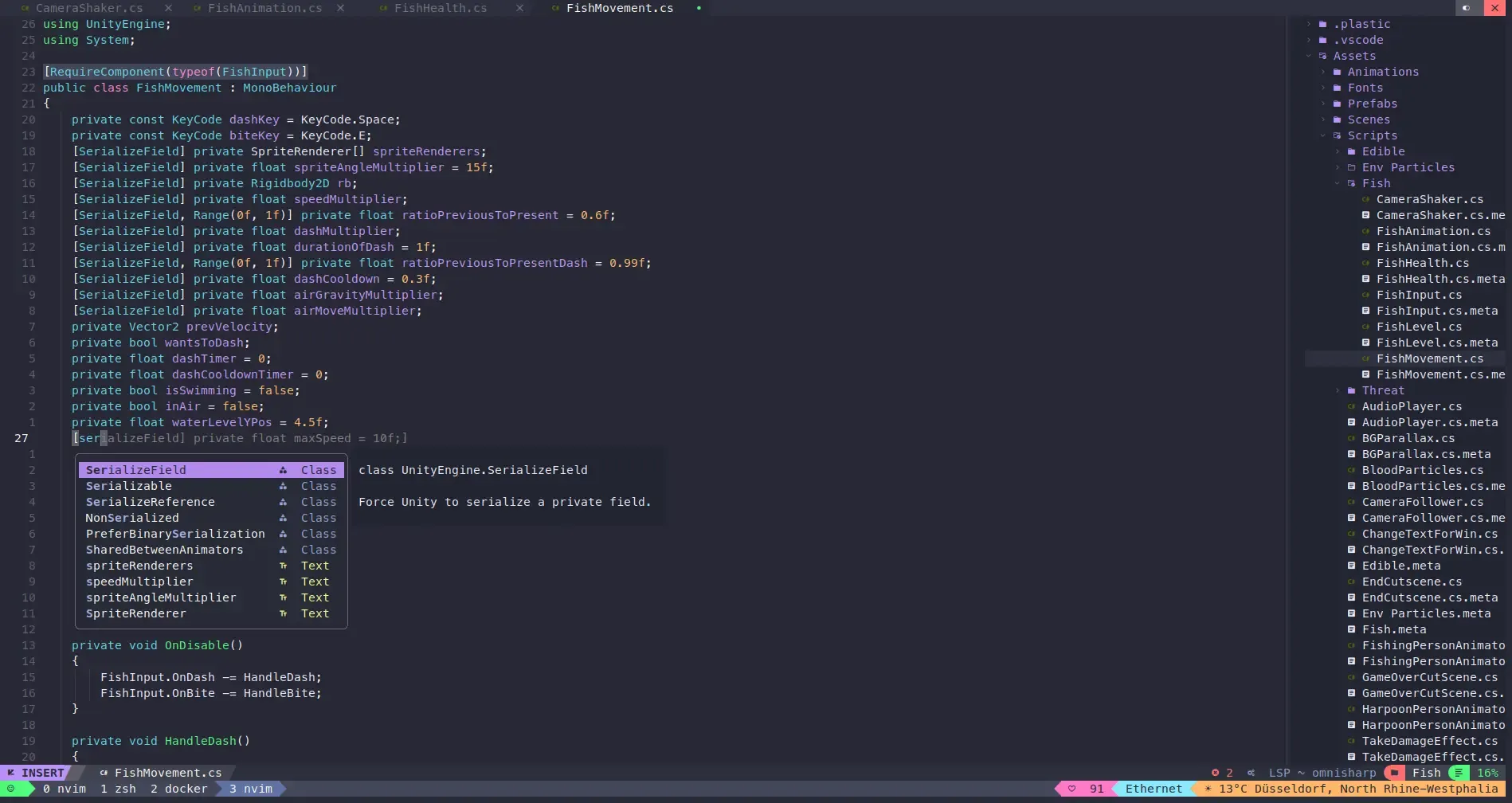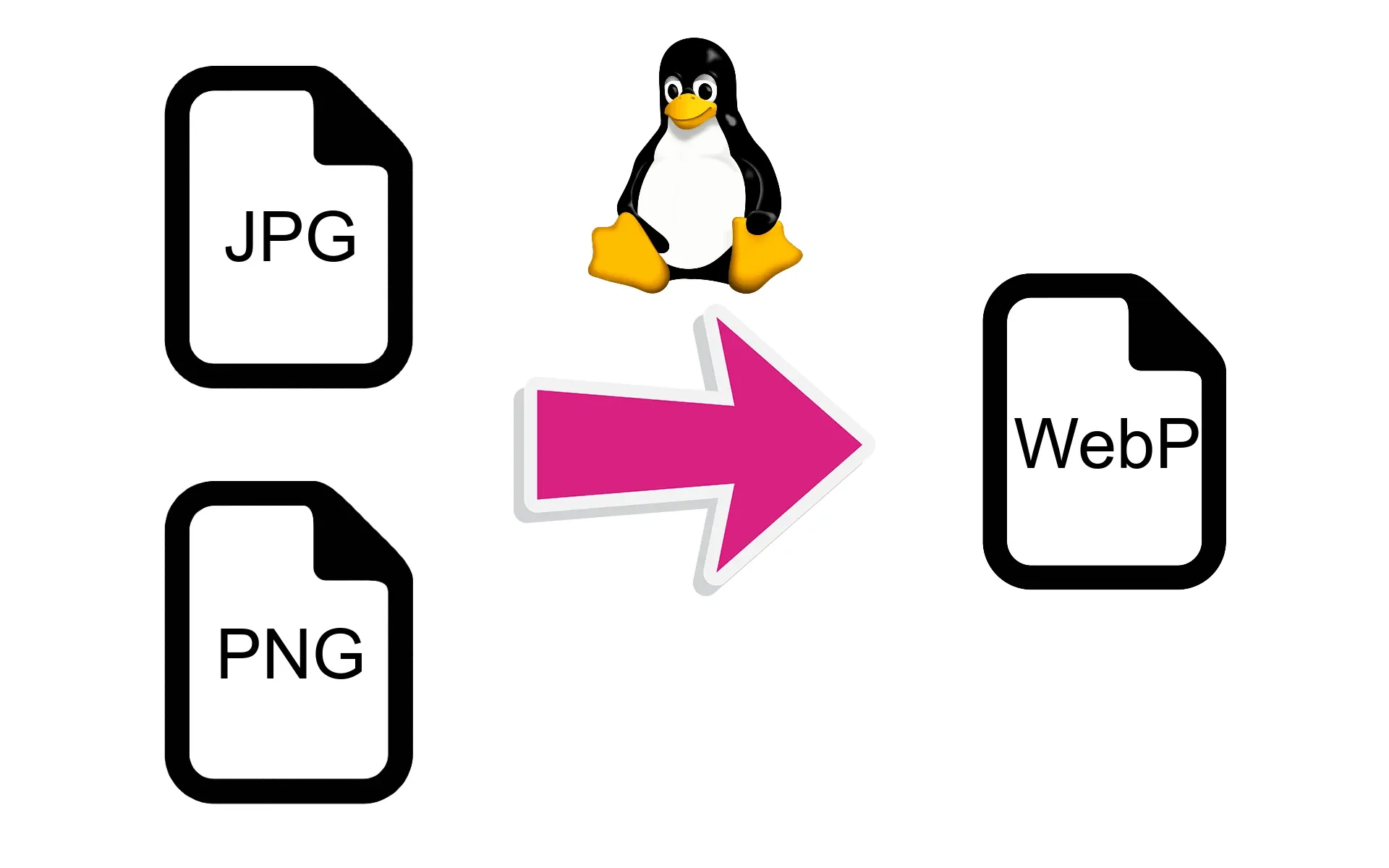Neovim is cool. It’s fast, it’s minimal, and it gives you full control. But let’s be real—most of us have spent more time fixing broken plugins and tweaking Lua configs than actually writing code. That’s where Zed comes in. It’s not here to be the fastest—just fast enough, stable as hell, and way more chill to use.
Neovim is Great... Until It's Not
- Plugins randomly stop working? Yep.
- Lua updated again? Time to fix your config.
- Hours gone tweaking keymaps or troubleshooting Mason? You know the pain.
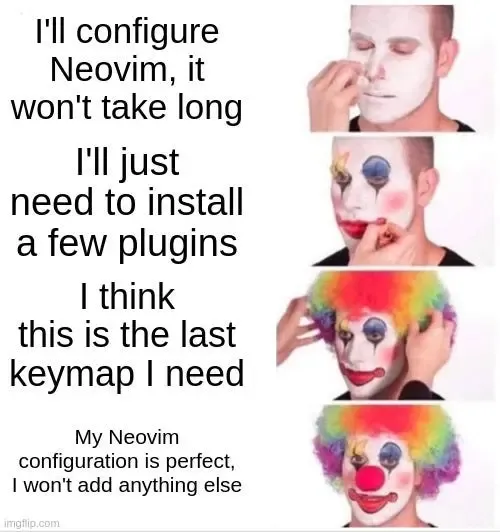 "Just 10 more plugins and it'll finally work... probably."
"Just 10 more plugins and it'll finally work... probably."
TL;DR: Neovim is awesome, but it can be a time sink.
Zed: Built in Rust, Feels Solid
Zed doesn’t pretend to be faster than Neovim. It’s not. But it doesn’t crash. It feels stable. It’s smooth and reliable, even on big projects.
- No weird errors.
- No crashing.
- No memory leaks.
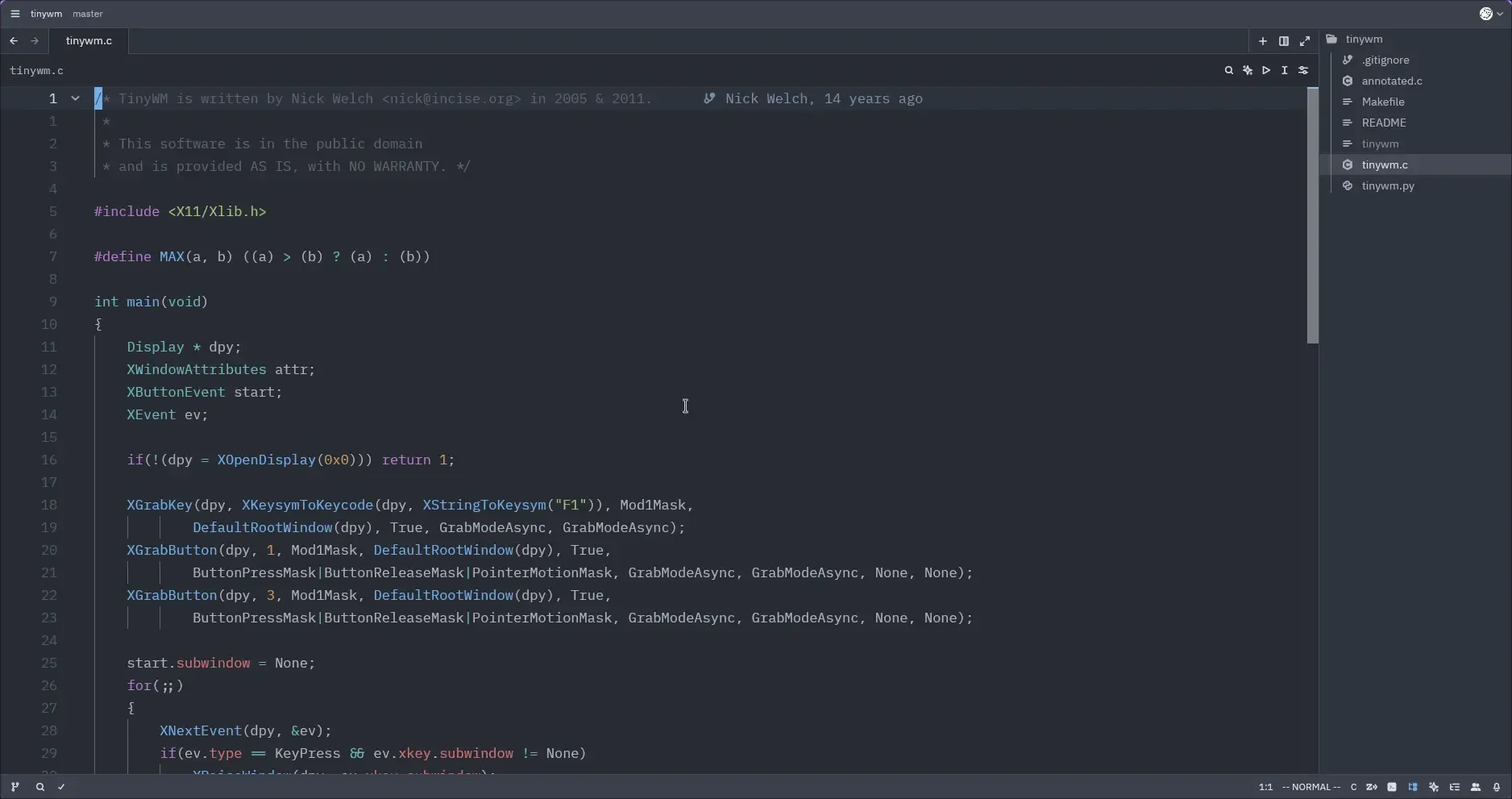
Rust under the hood means you can trust it to behave.
GUI That’s Actually Useful
Zed’s interface is clean and fast, without getting in your way:
- Image previews work out of the box.
- File tree? It’s there.
- Drag and drop? Yep, feels natural.
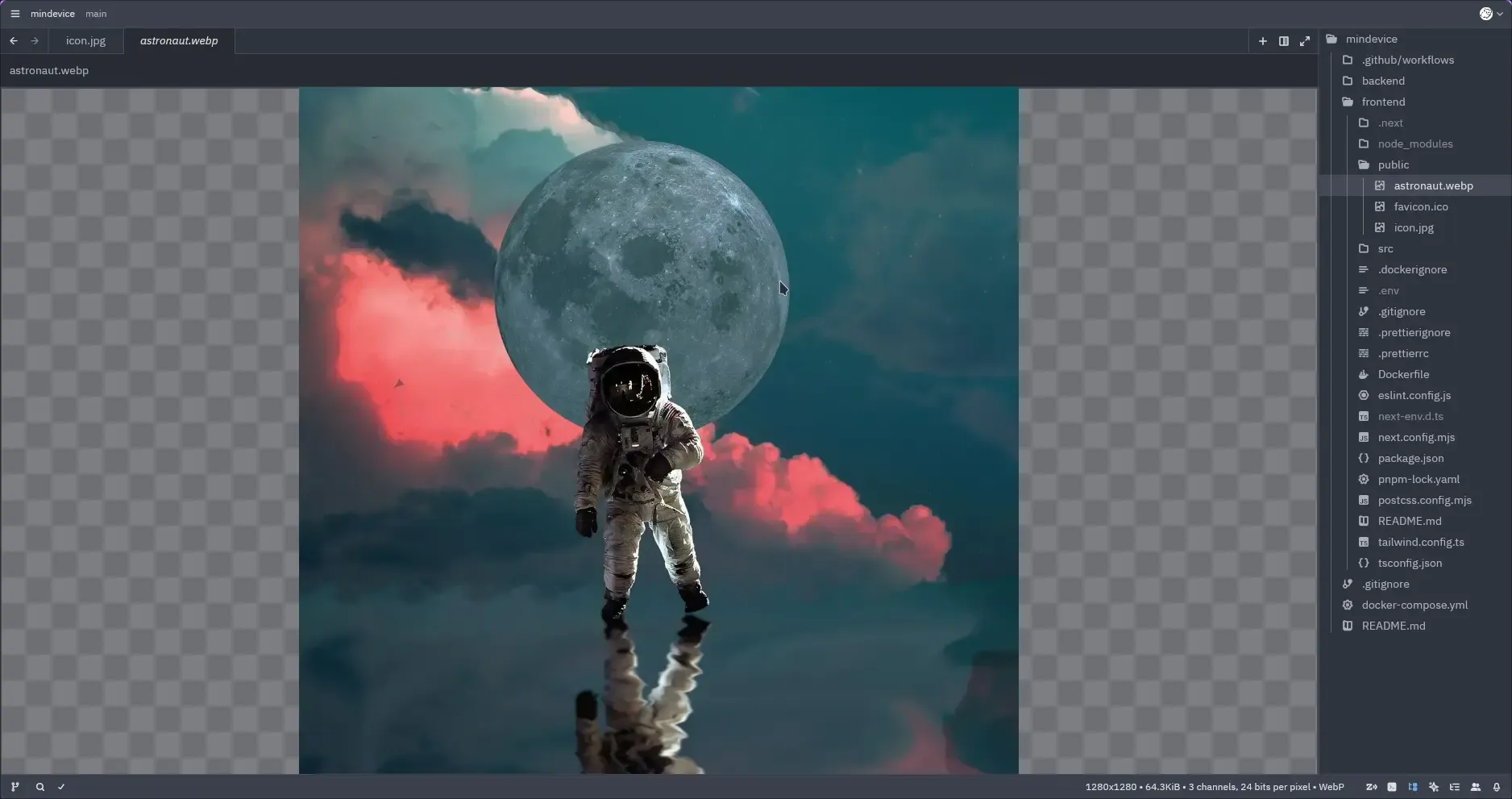
Want to switch panes with ctrl-w like you did in Vim? That works here too. Vim keybindings are fully supported.
Extensions Without the Lua Circus
Neovim:
- Pick a plugin manager (Packer, Lazy, Mason...?)
- Hope it installs.
- Restart a bunch.
Zed:
- Go to Extensions.
- Click install.
- Done.
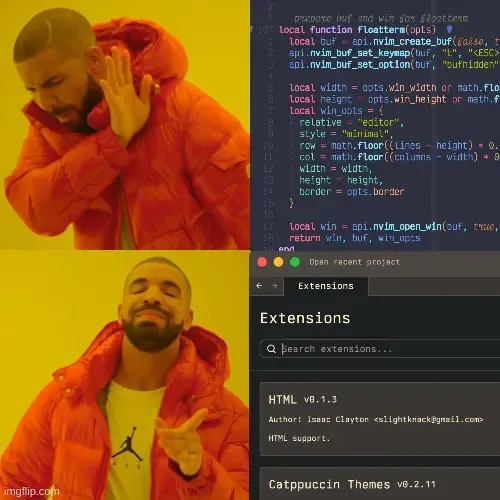 Drake prefers Zed’s one-click install.
Drake prefers Zed’s one-click install.
No terminal, no debugging, no praying to the Lua gods.
LSP: It Just Works
Zed ships with LSP support built in. No nvim-lspconfig, no extra tooling. Just open your code and go.
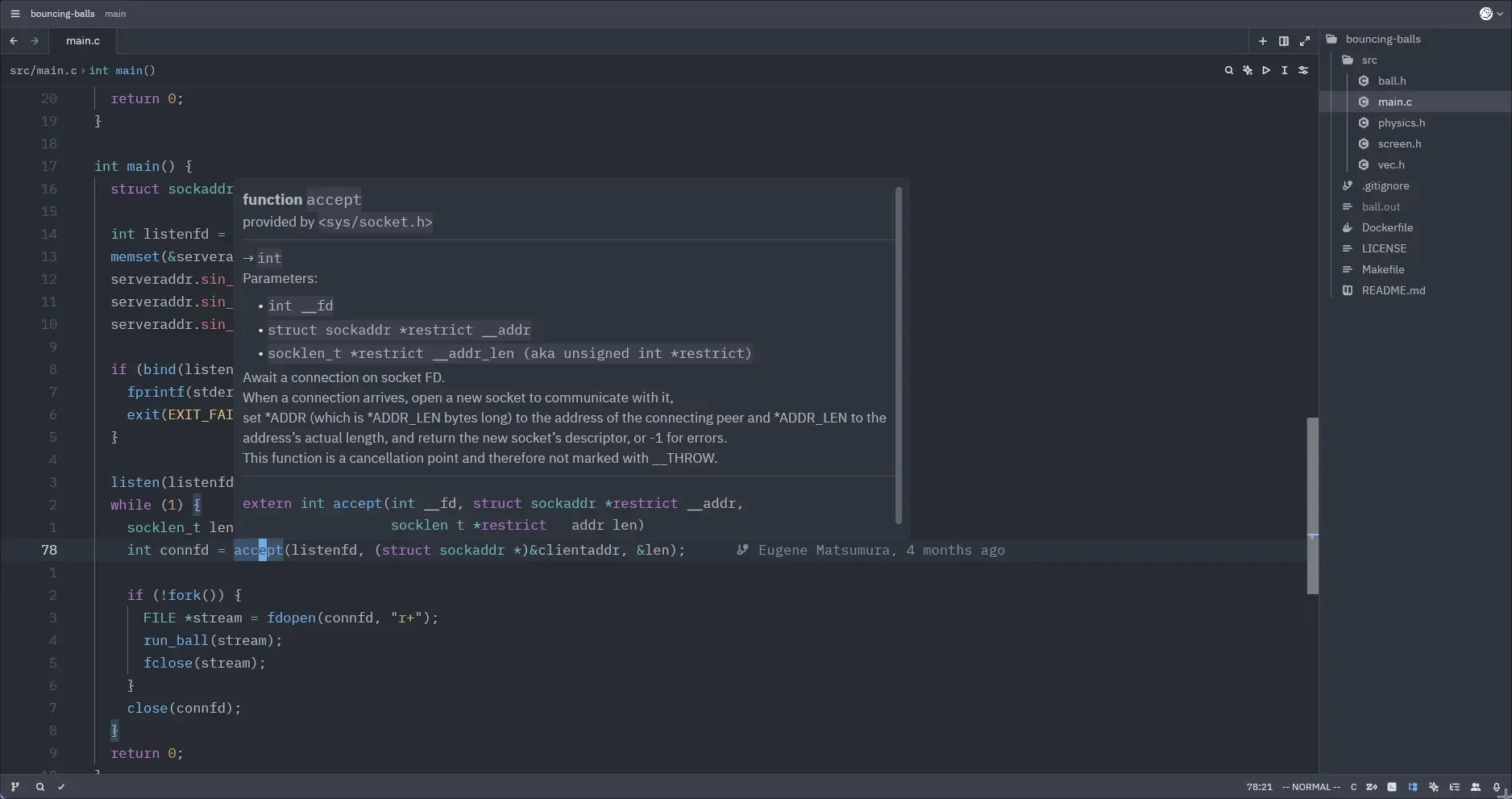
JS, Python, Rust, Go—it’s all ready to go. Seriously.
Vim Keybindings Feel Native
Vim mode in Zed isn’t an afterthought—it actually works. Motion keys, splits, even :wq if you want it. You can map stuff like NvimTree keybindings too.
Built-in Multiplayer Mode = Instant Pairing
This one’s wild. Zed lets you:
- Invite someone into your editor.
- See each other’s cursors.
- Work on the same file live.
Perfect for real-time collab, code reviews, or teaching someone something without endless Zoom screen shares.
All the Features, None of the Bloat
Zed gives you:
- Multiplayer
- AI (optional)
- Extensions
- Themes
But it still feels light. Everything loads fast and nothing feels bloated like some big IDEs.
Config That Doesn’t Break Every Week
The best part? Zed’s config doesn’t randomly explode.
- No Lua.
- No endless updates.
- No "why is Telescope broken again?" moments.
You install it, maybe tweak a few things, and that’s it. It just keeps working.
Zed vs. Neovim: Straight Comparison
| Feature | Zed | Neovim |
|---|---|---|
| Built With | Rust (safe, stable) | Lua (flexible, plugin-heavy) |
| Speed | Fast enough, reliable | Blazing fast, config-sensitive |
| GUI | Built-in, modern, visual | Terminal only |
| LSP | Preconfigured, ready to go | Manual install & config |
| Keybindings | Full Vim mode + extras | Full Vim/Neovim keybinds |
| Multiplayer | Built-in | Plugin-based, if at all |
| AI Tools | Built-in (optional) | Needs third-party |
| Extensions | One-click, no hassle | Needs plugin managers |
| Config | Stable, rarely touched | Constant tweaking |
| Best For | People who want to code, not configure | People who enjoy building their setup |
Final Thoughts: Zed Just Works
Neovim will always have a place. It’s a power user’s dream. But if you’re done debugging your tools and just want to write some code, Zed is where it’s at.
- It’s stable.
- It supports Vim stuff.
- The LSP is ready.
- The UI is clean.
- And multiplayer is built in.
If you want less tweaking and more building, Zed’s your next editor.

